MALKIT SINGH ON HIS CAREER HIGHS AND CREATING MUSIC IN A PANDEMIC
by ASJAD NAZIR
BRITAIN’S greatest bhangra star Malkit Singh continues his epic musical journey 34 years after he announced his arrival.
The superb songs, awesome albums, magical moments, numerous awards including an MBE and record-breaking achievements have been milestones in the glittering career of the artist, affectionately known as the golden star. The Birmingham-based legend has spent lockdown creating new songs and has signed up to star in new British film Lekh.
Eastern Eye caught up with Malkit Singh to talk about his game-changing time in music, hit songs, new film, the ailing UK bhangra industry and his hopes for the future.
How did you spend the Covid-19 lockdown?
This has been a difficult time for all of us. I would normally be touring, but have used this time to create new songs and compositions. I have even signed a film after a long time. I do a Facebook live post every Friday, which has enabled me to connect with so many wonderful people around the world. So I have kept myself busy and it has been good fun.
The rest of us are getting older, but you don’t seem to age. What is your secret?
(Laughs) Asjad, it is the wonderful way in which you and other well-wishers look at me with the same love as you did 10, 20 and 30 years ago. When you look at someone with love they stay the same. Aside from that I do a lot of high-energy shows, so get a good workout. I think bhangra is a great exercise. I also go for walks every day and do yoga. In addition, it is the blessings from a higher power.
You have been at the top for over 30 years. What keeps your passion so strong?
It is the meaningful songs, being able to create new compositions and tackling different subjects every time. I always try something new with every song and album. I don’t want to keep doing the same things, so that is good motivation for me. Also, those who like my music keep me going and I am really mindful about keeping them happy because they have given me so much. It motivates me to look after myself, including my health and voice, and work harder.
Have you had a chance to look back on your music journey during lockdown?
I have been fortunate to do a lot and feel blessed. So when you are at home because of lockdown, those memories are there in front of you, like the awards and photograph with the Queen. But looking back at the achievements makes me want to work even harder, because I want a little bit more of that. It makes me think about what I can do better now and in the future.
Does that include live performances?
Yes, for sure. I always say to my musicians that people invite us for shows, so we have to do more than 100 per cent, push it to 130, 140 per cent or whatever we can. So I always think about what extra or different I can do.
Which of your hit songs is closest to your heart?
The meaningful songs I have done will always mean the most to me like Jind Mahi, which had featured in the film Bend It Like Beckham. I also like the family songs I have done like Manwan Than Dian Chhawan and Maa. I really like these types of songs. People call me a bhangra star, but I like meaningful songs most of all and have kept doing them throughout my career because people love them. I always get requests to do more of these types of songs, so they will always remain connected to my heart.
You are a world-famous music star, but what led you towards signing a film as an actor?
I had done some films a long time ago, including Mehndi Shagna Di and Babal Da Vehra. My songs have also appeared in films and I had made guest appearances performing some of them. In addition, a few of my songs have been used as film titles in the past. So that connection to cinema has always been there, but the main thing for me was keeping my turban. It is associated with me and very important to me, so I would only want to be in a film if I can keep my turban on.
Is that why you decided to sign Lekh?
After I had done a film things changed and a lot of producers contacted me, but they didn’t want me in a turban. I said that was a compromise I was not willing to make. I was very clear that if someone wanted me to play a character with a turban then I could do it. So they agreed and it was an important part of the story. That was the first reason and the second was this is a complete British-Punjabi movie. The producer, director and lead are all from England. The entire movie is being shot in the UK with a British crew. That really suited me.
What do you mean?
If you sign a film in India you are gone for two-three months, but this allows me to carry on doing live shows at weekends and shoot the movie. We start shooting when the pandemic is over, hopefully by the end of November. Most films today are based on comedy and you can’t understand what is going on a lot of the time, but this is an emotional film, with other elements like comedy.
What about the music in it?
I’m playing the lead, but will also be delivering the songs.
You are known as a singer, but you are also one of the greatest songwriters. Where do you draw inspirations from?
I always looking for different ideas and subjects that people perhaps have not done before. I am known as a bhangra star and when you are on stage, people want heavy, dance-inspired songs, which I give them. Then I also try to do fun songs like Mama Bada Great, wedding songs, meaningful numbers and spiritual music. I write a wide variety of songs, so get inspired by everything. During lockdown, I have been doing a lot of song writing. I am just waiting for the lockdown to be over – I have a lot of music ready and I am waiting to be able to shoot the music videos in India.
What do you feel about the fact that the new generation hasn’t been able to carry the legacy of legends like you forward?
First, I am really proud of the British-Asian music industry. We have produced so many good musicians, great singers and wonderful bands. They all did a really good job of laying the foundation. But the new generation wasn’t able to evolve or take that work forward, and allowed the Indian industry to take over.
Why is the Indian Punjabi music industry thriving and the UK one dying?
You have to realise that a lot of artists and producers from India came to the UK, recorded in studios here with British musicians. They took samples and sounds back to India, and took full credit. Also in India they are able to do it full-time, here musicians have to do other jobs, so that is why they have been left a little behind. But bhangra started in the UK and went global – we shouldn’t forget that. Birmingham will always be the capital of bhangra and we inspired the world.
So what can be done to revive the Punjabi music industry here?
My new film is completely British, and I am hoping it does something to revive the industry to show what we can do. I want to say to those artists working hard, ‘come up with different ideas, bring something new and don’t give up. Music has changed a lot, so find out what the new generation is listening to.’ I do hope UK musicians can come to the forefront again. I feel really sad when people say the British bhangra industry is dead. I hope it rises again.
You have met amazing people in your life, from music legends to the Queen. Who has been the most memorable?
It was a dream come true to get an MBE from the Queen and was a first (for a Punjabi music artist). On a personal level, the (late) Ustad Nusrat Fateh Ali Khan was the most memorable because he was my teacher and mentor. I spent a lot of time with him and learned so much from him. Those memories with him will always be treasured. I am blessed to meet great people every day and they all turn into wonderful memories.
Finally, why do you love music?
Music is my life, what I do, and my bread and butter. Music is in my mind 24 hours a day. I can’t think of anything else. I have given my life to music and dedicate my life to music.




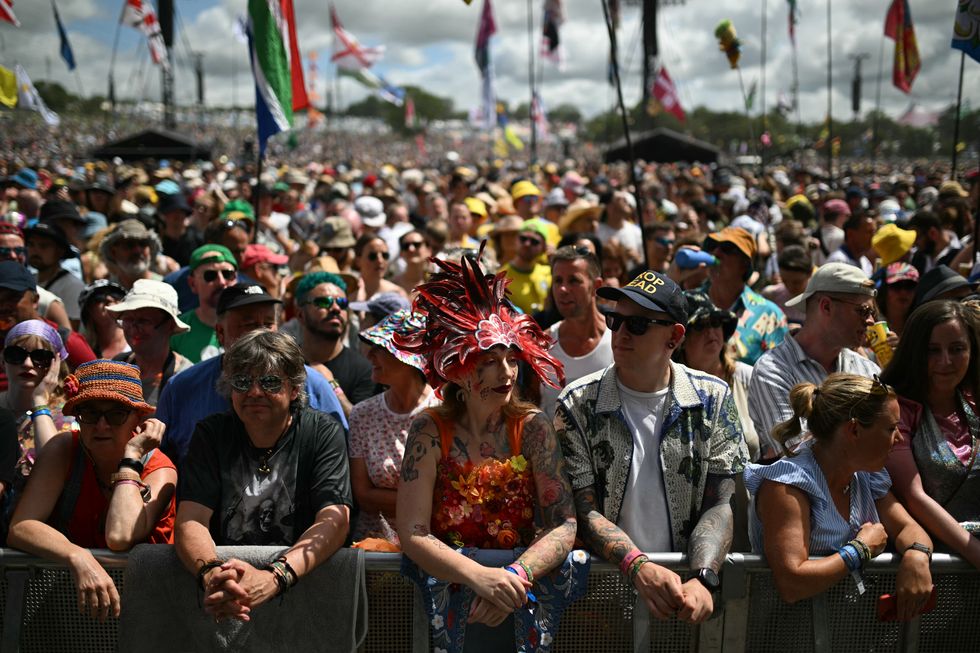 Festival goers at Glastonbury festival 2025Getty Images
Festival goers at Glastonbury festival 2025Getty Images 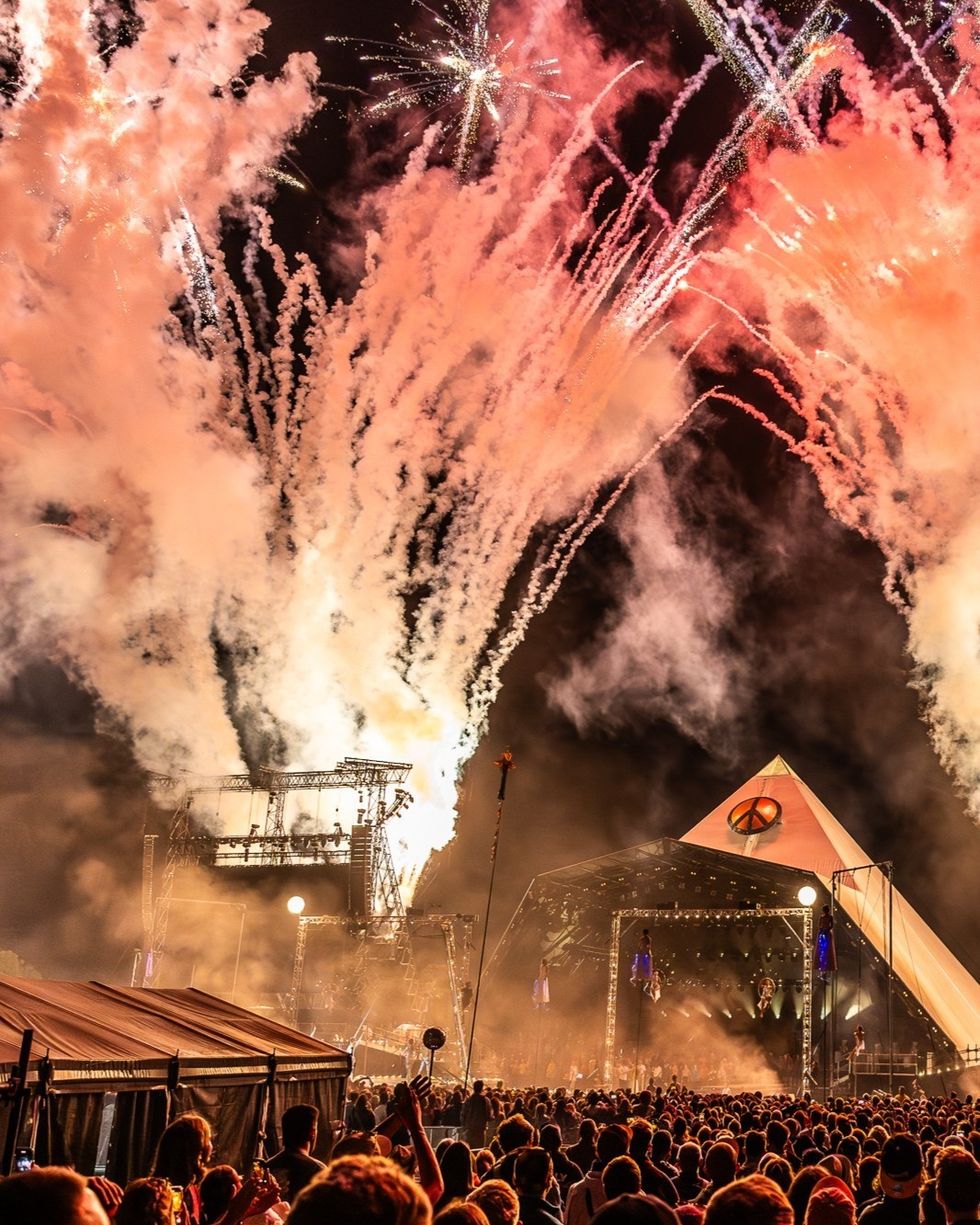 Pyramid Stage crowd swells ahead of the mystery Patchwork act rumoured to be Pulp Instagram/
Pyramid Stage crowd swells ahead of the mystery Patchwork act rumoured to be Pulp Instagram/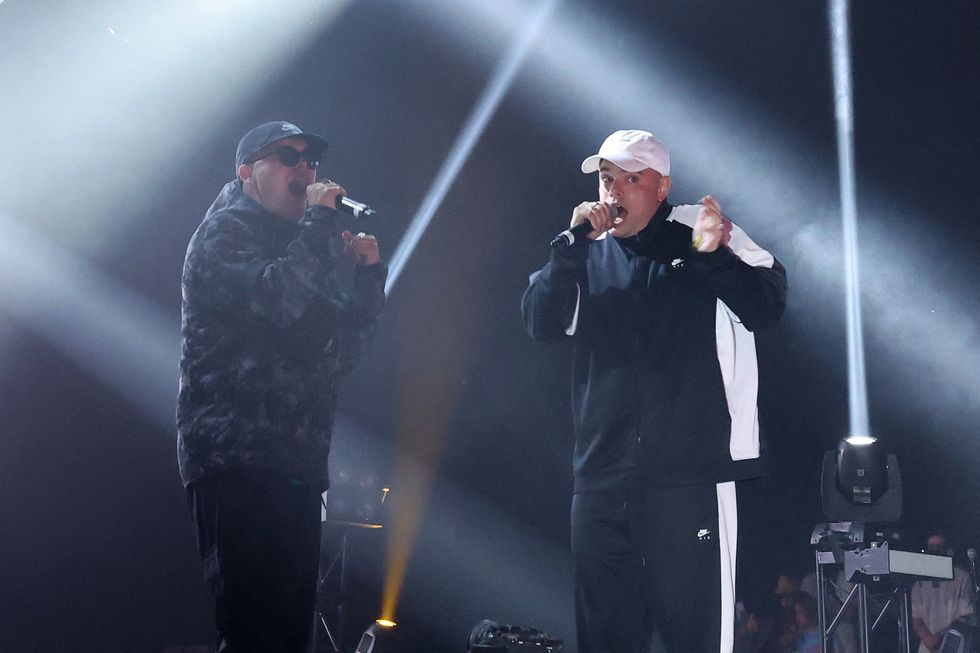 Kneecap welcome as political tension surrounds their setGetty Images
Kneecap welcome as political tension surrounds their setGetty Images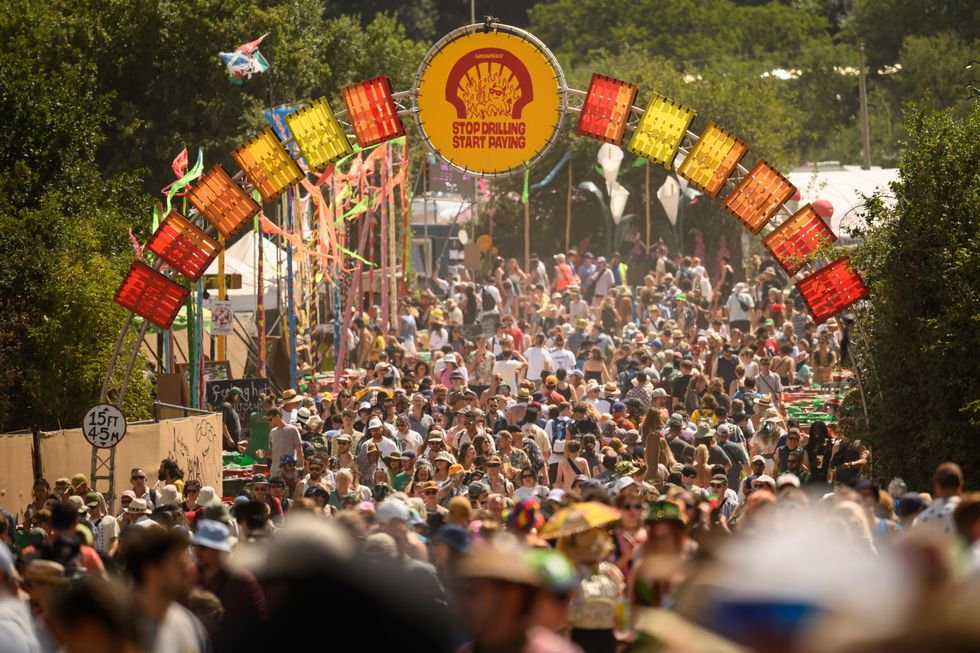 Crowds of festival-goers fill the pathways during day three of Glastonbury festival 2025Getty Images
Crowds of festival-goers fill the pathways during day three of Glastonbury festival 2025Getty Images 








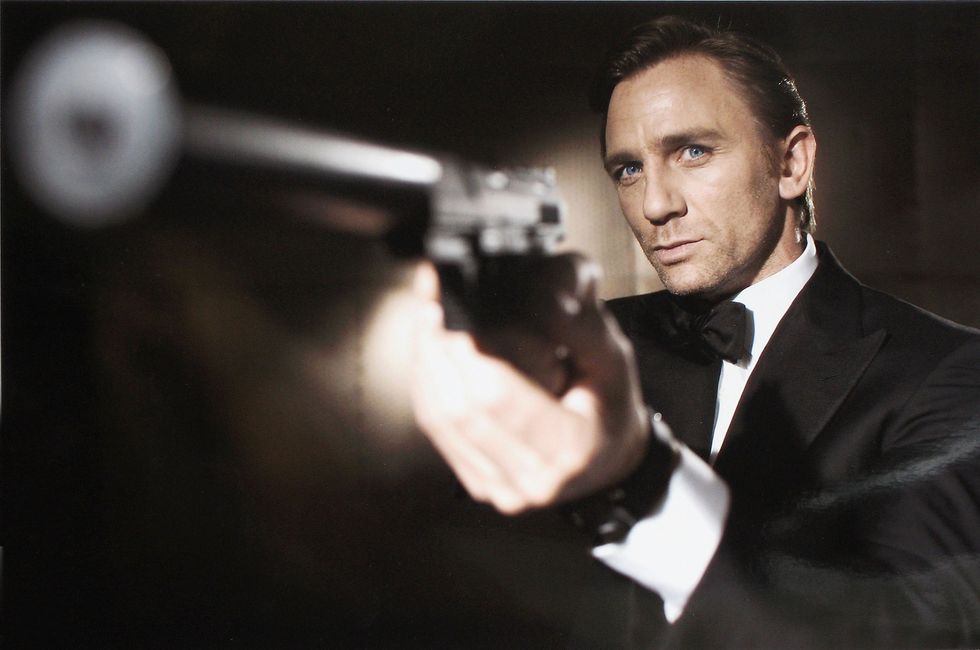 Daniel Craig poses as James BondGetty Images
Daniel Craig poses as James BondGetty Images  James Bond casting shortlist revealed with Tom Holland Jacob Elordi and Harris Dickinson in leadGetty Images
James Bond casting shortlist revealed with Tom Holland Jacob Elordi and Harris Dickinson in leadGetty Images Is this the youngest James Bond yet as Tom Holland Harris Dickinson and Jacob Elordi lead casting rumoursGetty Images
Is this the youngest James Bond yet as Tom Holland Harris Dickinson and Jacob Elordi lead casting rumoursGetty Images
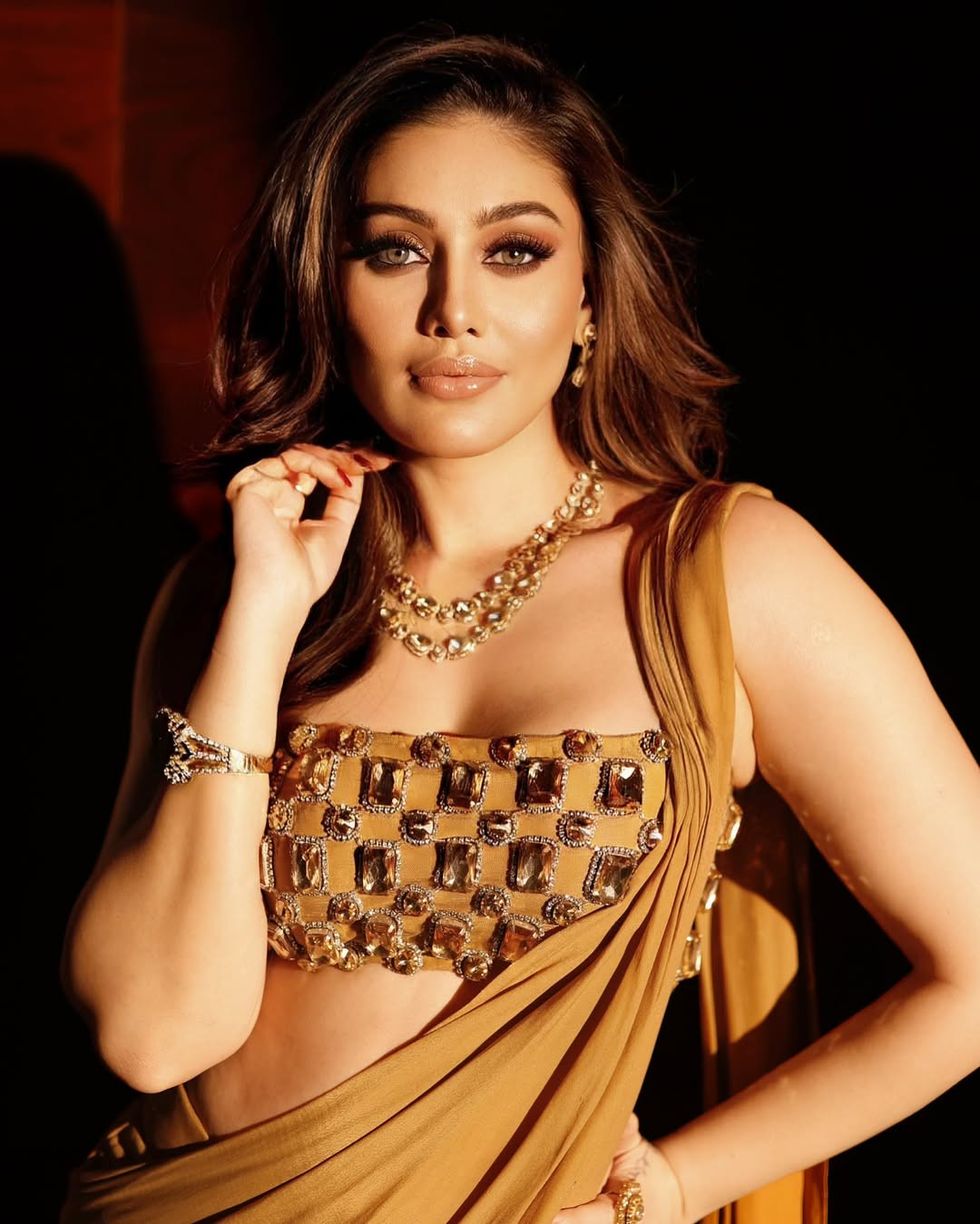 Shefali Jariwala dies at 42 after cardiac arrest, industry mourns Kaanta Laga starInstagram/
Shefali Jariwala dies at 42 after cardiac arrest, industry mourns Kaanta Laga starInstagram/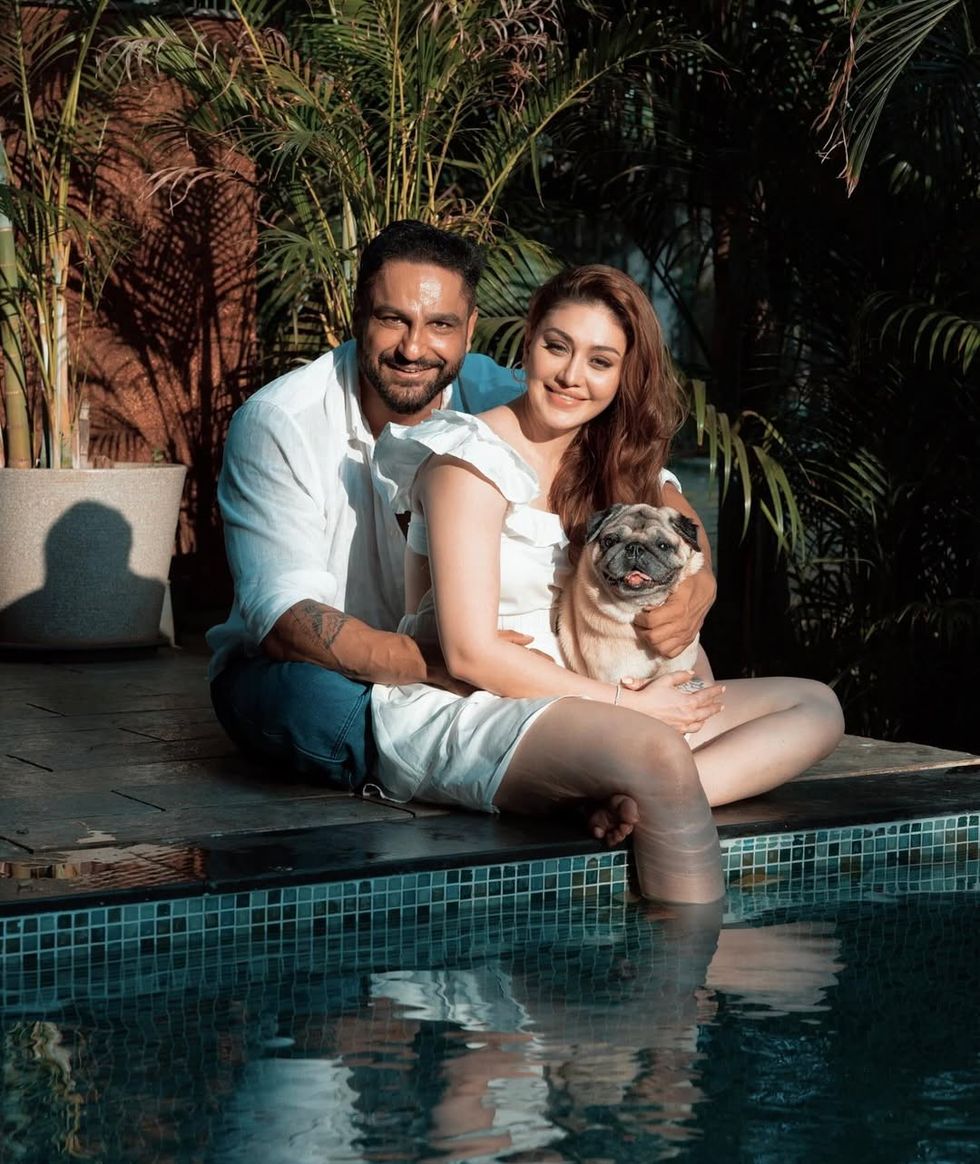 Shefali Jariwala was married to actor Parag Tyagi,Instagram/
Shefali Jariwala was married to actor Parag Tyagi,Instagram/
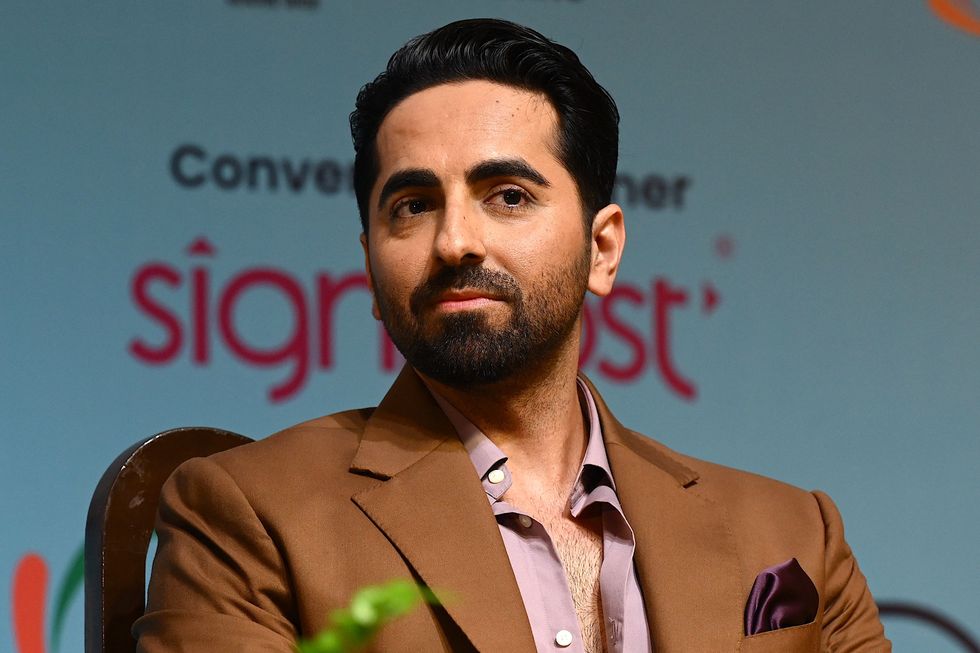 Ayushmann Khurrana attends an event at the FICCI Frames 2024 Getty Images
Ayushmann Khurrana attends an event at the FICCI Frames 2024 Getty Images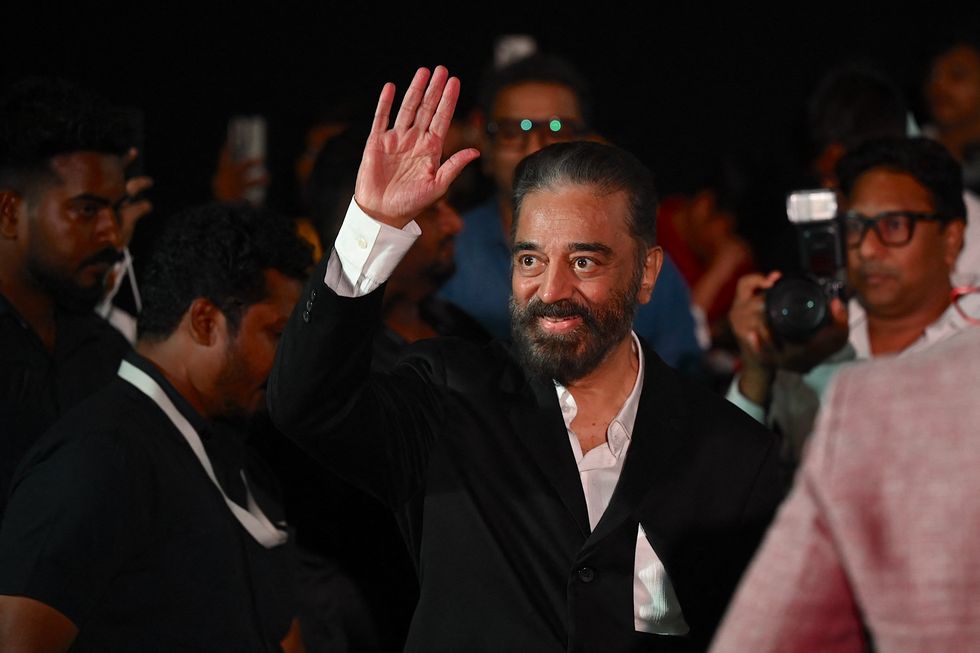 Kamal Haasan waves as he attends a press conference for 'Thug Life'Getty Images
Kamal Haasan waves as he attends a press conference for 'Thug Life'Getty Images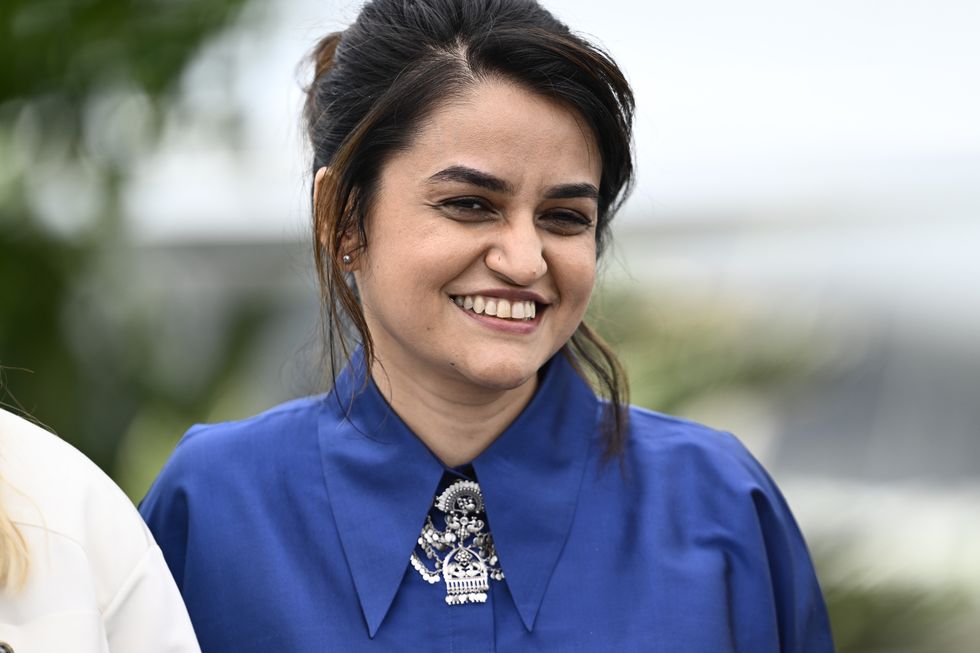 Payal Kapadia smiles during the Jury photocall at the 78th annual Cannes Film FestivalGetty Images
Payal Kapadia smiles during the Jury photocall at the 78th annual Cannes Film FestivalGetty Images
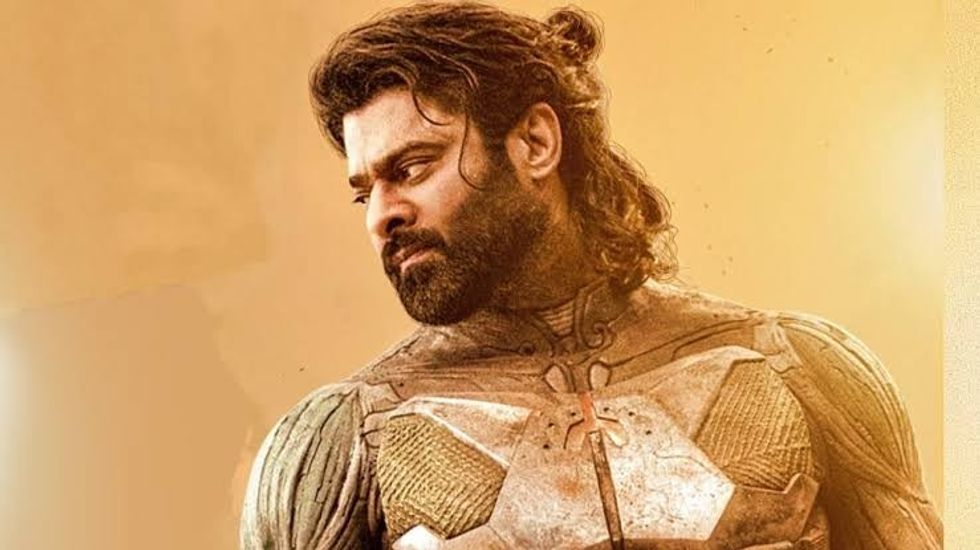 Prabhas in a still from Kalki 2898 AD which completed one yeargetty images
Prabhas in a still from Kalki 2898 AD which completed one yeargetty images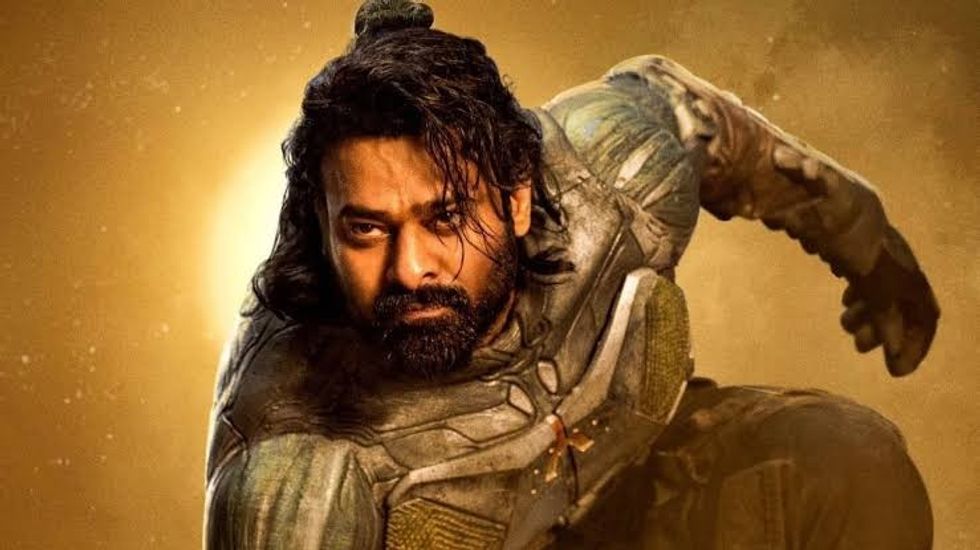 Kalki 2898 AD became one of the top three biggest openers in Indian cinemagetty images
Kalki 2898 AD became one of the top three biggest openers in Indian cinemagetty images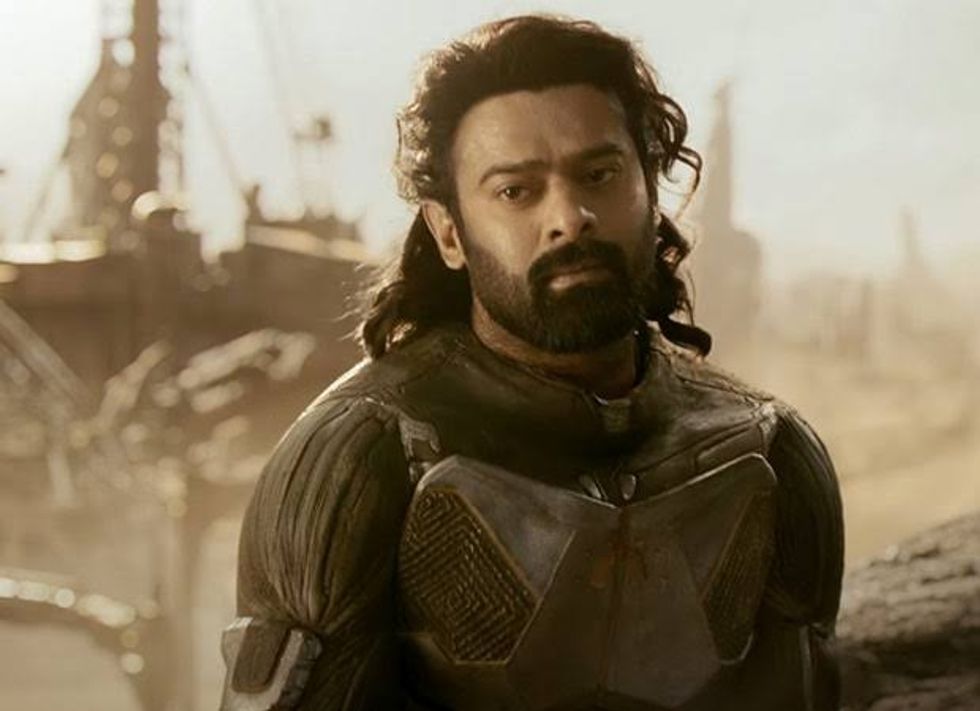 Kalki 2898 AD brought together sci-fi and mythology in a first-of-its-kind Indian filmgetty images
Kalki 2898 AD brought together sci-fi and mythology in a first-of-its-kind Indian filmgetty images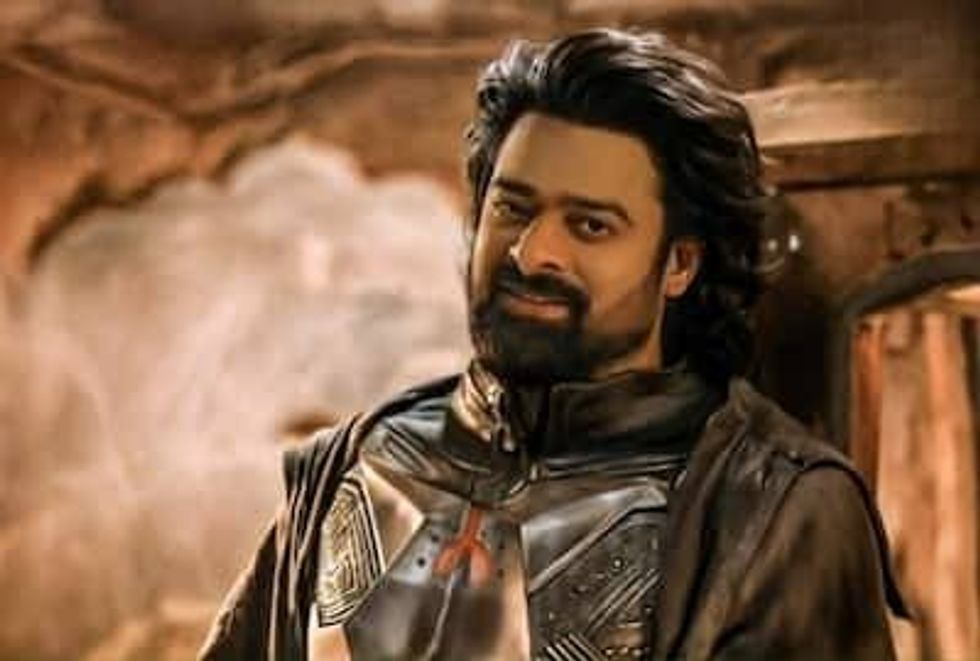 Prabhas plays the futuristic warrior Bhairava in Kalki 2898 AD getty images
Prabhas plays the futuristic warrior Bhairava in Kalki 2898 AD getty images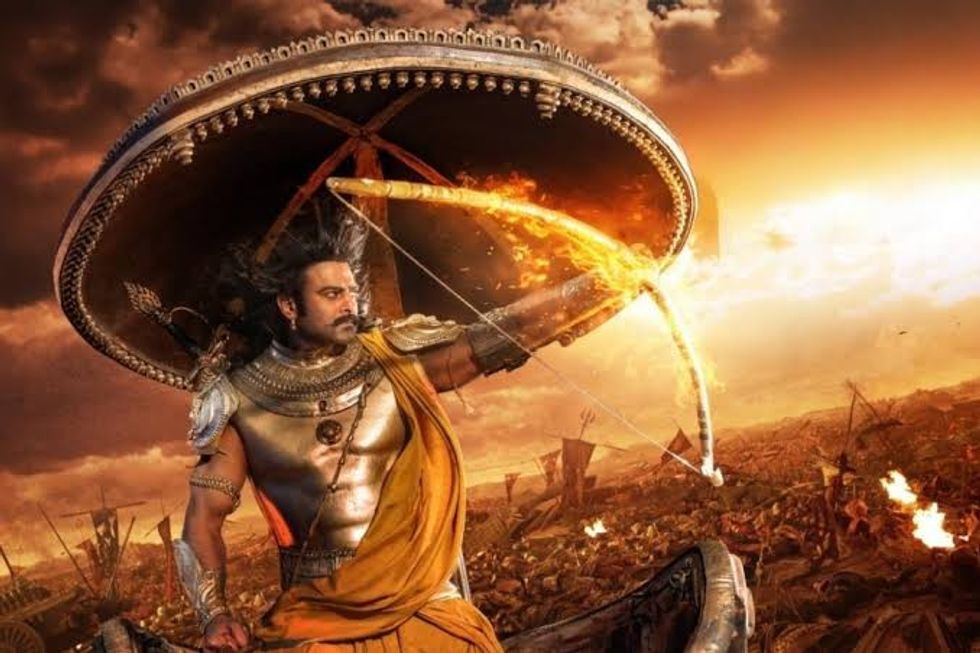 Prabhas in action during a high-intensity sequence from Kalki 2898 ADgetty images
Prabhas in action during a high-intensity sequence from Kalki 2898 ADgetty images
Police may probe anti-Israel comments at Glastonbury